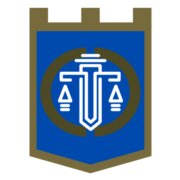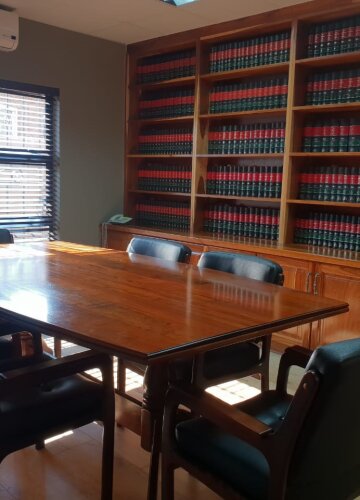Best Bankruptcy Lawyers in South Africa
Share your needs with us, get contacted by law firms.
Free. Takes 2 min.
Or refine your search by selecting a city:
List of the best lawyers in South Africa
About Bankruptcy Law in South Africa
Bankruptcy in South Africa, commonly referred to as insolvency, is a legal process whereby individuals or businesses who are unable to meet their debt obligations formally declare themselves insolvent. This process is primarily governed by the Insolvency Act of 1936. The goal of bankruptcy proceedings is to fairly distribute the debtor's assets among creditors and, in many cases, provide the debtor with a fresh start by discharging certain debts. It's important to note that bankruptcy is a serious legal consideration and should be treated as a last resort after exploring all other financial recovery options.
Why You May Need a Lawyer
Seeking the help of a lawyer is crucial in navigating the complexities of bankruptcy because:
- Legal Advice: Bankruptcy laws can be intricate, and a lawyer can provide expert guidance specific to your situation.
- Representation: A lawyer can represent you in court proceedings and negotiations with creditors.
- Asset Protection: Legal advice is vital in protecting certain assets from liquidation.
- Paperwork: A lawyer will help you comply with all documentation requirements, reducing the risk of your case being dismissed due to errors.
Local Laws Overview
The key aspects of local bankruptcy laws in South Africa under the Insolvency Act include:
- Voluntary Surrender: Individuals can voluntarily surrender their estates to receive a sequestration order.
- Sequestration: Involuntary sequestration can be sought by creditors if they prove a debtor is insolvent.
- Debt Counseling: Alternatives like debt review should be considered before applying for bankruptcy.
- Rehabilitation: After certain conditions are met, a debtor may apply for rehabilitation and restore their legal status.
Frequently Asked Questions
1. What is the role of a Trustee in bankruptcy?
A Trustee is appointed to manage the debtor's estate, ensuring assets are fairly distributed amongst creditors and overseeing the administration during the bankruptcy process.
2. Are all debts included in bankruptcy?
Not all debts may be discharged through bankruptcy, including certain taxes, fines, and child maintenance obligations.
3. How does bankruptcy affect my credit rating?
Bankruptcy has a significant negative impact on your credit record and can limit your ability to access credit for several years.
4. Can I keep my home if I go bankrupt?
It may be possible to keep your home, but it largely depends on the equity in the property and negotiations with creditors.
5. What happens to my business when I declare bankruptcy?
If you're a sole proprietor, your personal and business debts are intertwined, and both will be affected. Companies have different insolvency procedures.
6. Can bankruptcy stop legal actions from creditors?
Upon the court's granting of a sequestration order, an automatic moratorium is placed on legal proceedings from creditors.
7. How long does bankruptcy last?
In South Africa, a typical bankruptcy lasts from four to five years, unless an application for rehabilitation is successful sooner.
8. What costs are involved in the bankruptcy process?
The cost varies but includes court fees, the Trustee's fees, and any legal representation costs.
9. Can I leave the country during bankruptcy?
Bankruptcy may restrict your ability to travel abroad without the Trustee's or court's permission.
10. When should I consider alternatives to bankruptcy?
Consider debt counseling, restructuring agreements, or debt consolidation if you have a viable path to managing debts outside of bankruptcy.
Additional Resources
For those seeking more information, consider reaching out to the following organizations:
- National Credit Regulator (NCR): Provides guidance on debt review and consumer rights.
- South African Law Society: Can help with finding accredited lawyers with expertise in insolvency.
- Debt Counselling Firms: Offer services to assist with debt management plans.
Next Steps
If you need legal assistance in bankruptcy, the following steps are recommended:
- Contact a Lawyer: Find a lawyer specializing in bankruptcy to evaluate your financial situation.
- Gather Financial Documentation: Compile a detailed record of your assets, liabilities, income, and expenses.
- Explore All Options: Discuss alternatives to bankruptcy with your lawyer, such as debt review or consolidation.
- Understand Your Obligations: Ensure you understand all legal obligations before proceeding with bankruptcy.
- File for Bankruptcy: If necessary, your lawyer will guide you through the filing process and represent you in any court proceedings.
Lawzana helps you find the best lawyers and law firms in South Africa through a curated and pre-screened list of qualified legal professionals. Our platform offers rankings and detailed profiles of attorneys and law firms, allowing you to compare based on practice areas, including Bankruptcy, experience, and client feedback.
Each profile includes a description of the firm's areas of practice, client reviews, team members and partners, year of establishment, spoken languages, office locations, contact information, social media presence, and any published articles or resources. Most firms on our platform speak English and are experienced in both local and international legal matters.
Get a quote from top-rated law firms in South Africa — quickly, securely, and without unnecessary hassle.
Disclaimer:
The information provided on this page is for general informational purposes only and does not constitute legal advice. While we strive to ensure the accuracy and relevance of the content, legal information may change over time, and interpretations of the law can vary. You should always consult with a qualified legal professional for advice specific to your situation.
We disclaim all liability for actions taken or not taken based on the content of this page. If you believe any information is incorrect or outdated, please contact us, and we will review and update it where appropriate.
Browse bankruptcy law firms by city in South Africa
Refine your search by selecting a city.
















